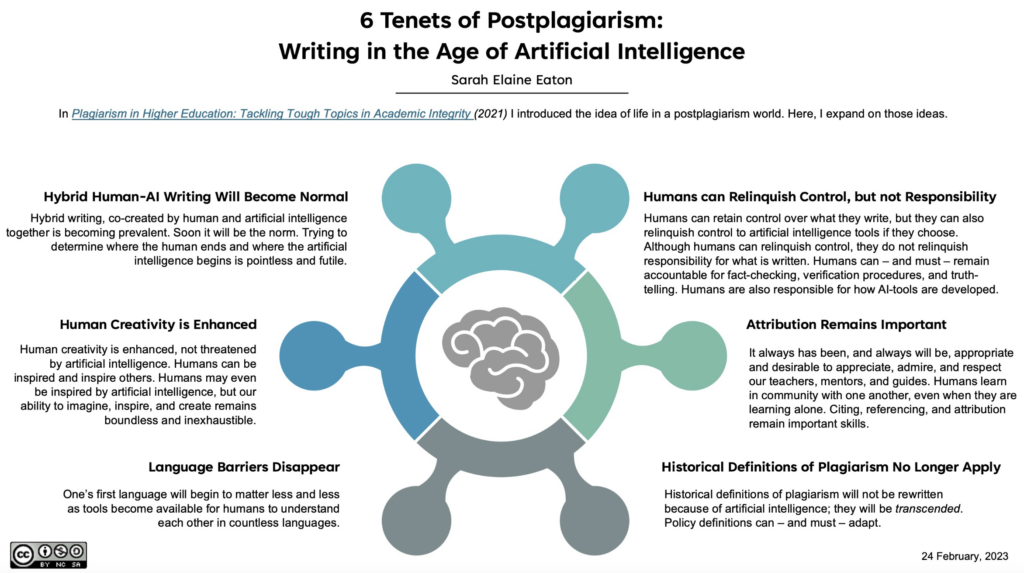“By allowing students to engage with AI in ethical ways that promote active learning, creativity, and critical thinking, educators are encouraging students to continue engaging with it positively.”
(MacDowell et al., 2024, p. 14).
The research suggests that students are going to use AI tools whether educators facilitate proper use or not, suggesting that educators can move towards integrating ethical use in several ways. Overall, students would benefit from understanding what constitutes plagiarism. Designing coursework, content and assessment that aligns with using AI with a guided framework of plagiarism, will help them maintain their academic integrity while embracing new technology.
- “59 per cent of 423 Canadian students surveyed use generative AI in their schoolwork, compared to 52 per cent in 2023. That’s a year-over-year increase of 13 per cent
- 75 per cent say generative AI tools have improved the quality of their schoolwork
- Over two thirds (67 per cent) of students using generative AI say they don’t think they are learning or retaining as much knowledge
- 82 per cent admit that they claim generative AI content as their own work
- 70 per cent say they are turning to generative AI tools for help rather than asking their instructors” (KPMG cite)
Opportunities for Learning in Class:
Step 1: Listen & Discuss
“The Opposite of Cheating”: Podcast
Key Points of the Podcast:
- Learning outcomes and assessment need to be revisited, as our courses and assessments may no longer be relevant in the age of AI.
- Educators have to put the value in process over product, “we have been relying on products for far too long as artifacts of learning, and they’ve been defunct for a while because of the internet, because of copying and pasting, because of contract cheating…” (EdSurge Podcast 2025).
- Move towards a competency-based model rather than organizing courses around content knowledge, “… should we be organized around disciplines anymore, around content knowledge, or should we be organized around human or durable skills that sets us apart from this gen AI” (EdSurge Podcast 2025).
Step 2: Engage
Lesson Plan: Artificial Intelligence – Is it Plagiarism?
Artificial-Intelligence_-Is-It-Plagiarism_-_-Common-Sense-EducationStep 3: Create
3. Dr. Sarah Elaine Eaton: Concept of “Post-Plagiarism”
Dr. Eaton offers an idea of being in the age of “Post-Plagiarism”, suggesting “hybrid writing, co-created by human and artificial intelligence together, is becoming prevalent. Soon it will be the norm. Trying to determine where the human ends and where the artificial intelligence begins is pointless and futile” (Eaton 2025). She still suggests students still need responsibility with their work and what they submit, and citing, referencing, and attribution are still important skills.

Works Cited:
https://kpmg.com/ca/en/home/media/press-releases/2024/10/students-using-gen-ai-say-they-are-not-learning-as-much.html

Recent Comments